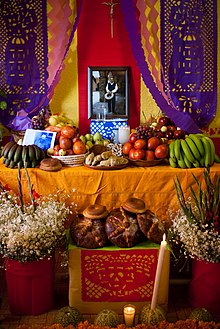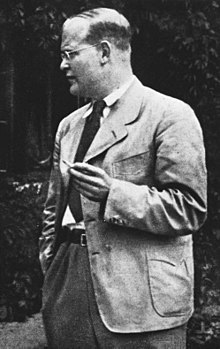Portal:Religion
The Religion Portal
Religion is a range of social-cultural systems, including designated behaviors and practices, morals, beliefs, worldviews, texts, sanctified places, prophecies, ethics, or organizations, that generally relate humanity to supernatural, transcendental, and spiritual elements—although there is no scholarly consensus over what precisely constitutes a religion. Different religions may or may not contain various elements ranging from the divine, sacredness, faith, and a supernatural being or beings. (Full article...)
 Vital article
Vital article
Hinduism (/ˈhɪnduˌɪzəm/) is an umbrella term for a range of Indian religious and spiritual traditions (sampradayas)[1] that are unified by adherence to the concept of dharma, a cosmic order maintained by its followers through rituals and righteous living, as first expounded in the Vedas. The word Hindu is an exonym, and while Hinduism has been called the oldest religion in the world, it has also been described by the modern term Sanātana Dharma (lit. 'eternal dharma') emphasizing its eternal nature. Another endonym for Hinduism is Vaidika Dharma (lit. 'Vedic dharma'). (Full article...)
 Did you know (auto-generated)
Did you know (auto-generated)
- ... that Musa va 'Uj depicts figures from all three Abrahamic religions?
- ... that Catherine de Parthenay, a 16th-century Huguenot leader, was a member of "a highly successful network of information" during the French Wars of Religion?
- ... that the author of the comic book Timeless Voyage was the leader of a UFO religion?
- ... that religious studies scholar C. Jouco Bleeker believed that religions are like acorns?
- ... that fictional religions, often described in speculative fiction, have in some cases inspired real religious movements?
- ... that a religious community is a group of people who practice the same religion, but do not have to live together?
The Oran fatwa was a responsum fatwa, or an Islamic legal opinion, issued in 1502 to address the crisis that occurred when Muslims in the Crown of Castile, in present-day Spain, were forced to convert to Christianity in 1500–1502. It was authored by a maliki mufti Ahmad ibn Abi Jum'ah, an Algerian scholar of Islamic law of the Maliki school; the term "Oran fatwa" was applied by modern scholars, due to the word "Al-Wahrani" ("of Oran") that appears in the text as part of the author's name. (Full article...)
Top 10 WikiProject Religion Popular articles of the month
 Subcategories
Subcategories
Topics
 Get involved
Get involved
- ^ Holberg (2000), p. 316; Nicholson (2013), pp. 2–5; McDaniel (2007), pp. 52–53; Michaels (2004), p. 21.


































































